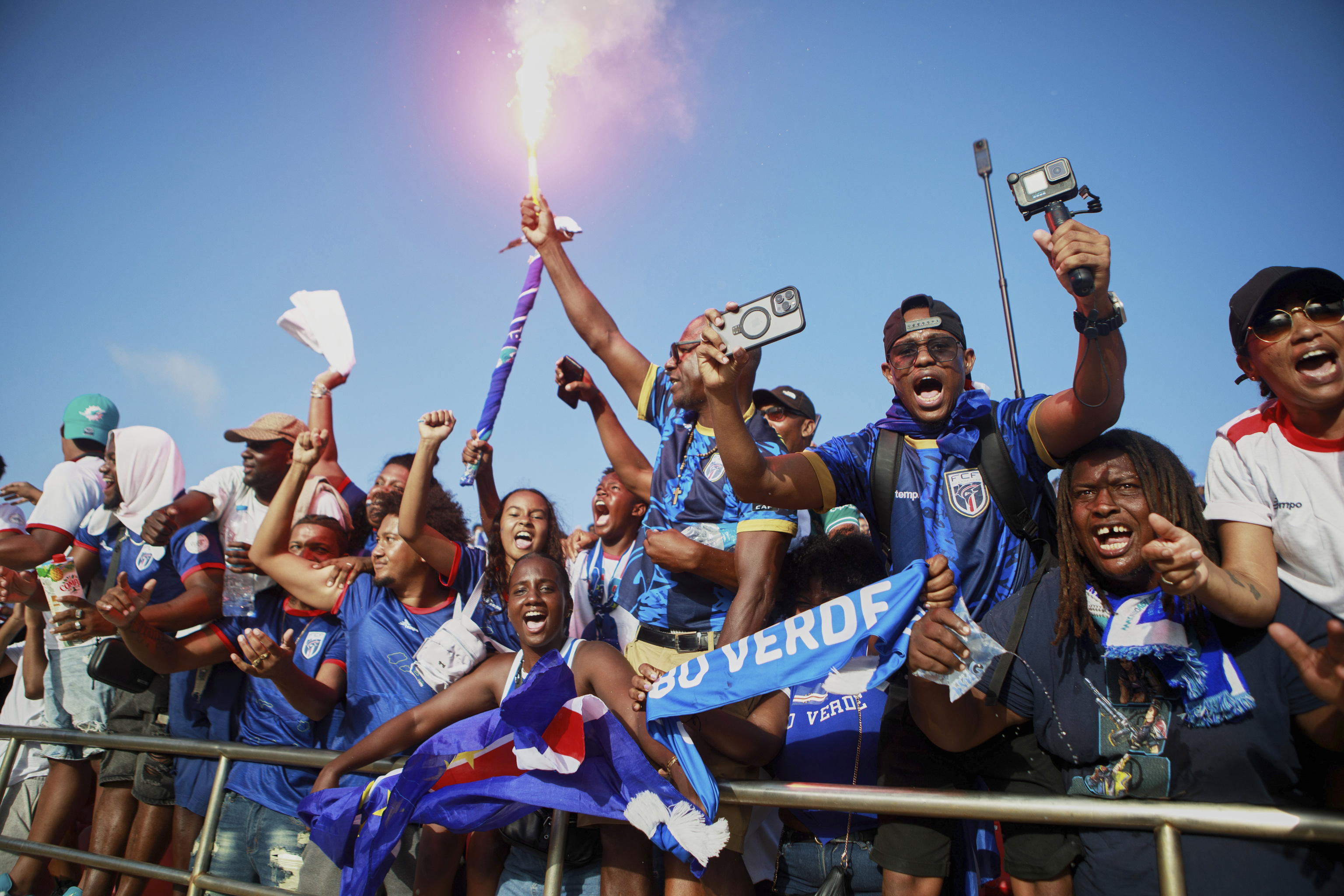There are just ten islands, six in the Windward Islands to the north, and four in the Leeward Islands to the south, located 600 kilometers from the African continent. 524,000 people live there, the vast majority in its capital, Praia, a logical name for a country close to the sea. It covers about 4,033 square kilometers in total, half the size of the Community of Madrid. And it is a part of football history. Cape Verde, formerly a Portuguese colony and now an independent republic, will be in the next World Cup after defeating Swaziland at the 'O Rei Pelé' National Stadium, confirming their leadership in the qualifying group against Cameroon, Libya, Angola, and Mauritius.
A groundbreaking achievement, benefiting from the World Cup's expansion to 48 teams, making it the smallest country by land area to compete in the World Cup, surpassing Trinidad and Tobago in 2006 (5,128), and the second with the fewest inhabitants, only surpassed by Iceland, which participated in 2018 with 353,070.
Cape Verde's dream, the third debutant in the next World Cup alongside Uzbekistan and Jordan, reflects its recent history, the story of immigration. The country, a former Portuguese colony from the 15th century until 1975, now enriches its national football team with players born in Europe, children of men and women who left Cape Verde seeking a better future and who now repay that effort with national sporting glory.
Out of the 25 players with the team in this October break, 14 were born in Europe: six in the Netherlands, five in Portugal, two in France, and one in the Republic of Ireland. Perhaps the most surprising case is the latest one.
Roberto Lopes was born in Dublin. Son of a Cape Verdean cook and an Irish worker, he played in the youth teams of his home country and barely spoke Portuguese when Rui Águas, Cape Verde's coach in 2018, contacted him via LinkedIn. "It was written in Portuguese, and I thought it was spam, but he wrote to me again in English, and that's where an incredible adventure began," detailed the center-back in some interviews.
Lopes, with a long career in the Irish Premier Division, decided to leave his native dream and embrace his Cape Verdean roots, the same roots that former stars like Vieira had. He was one of the many attempts by the country's Federation to recruit children of immigrants, a trend that is increasingly seen in more national teams, like the cases of Morocco or Albania, where only seven out of the 26 called up for the last European Championship were born in the country.
Cape Verde's surprise is immense when considering its place in African and world football. It was one of the worst teams in the qualifying phase for the 2025 Africa Cup, earning only four points in the group with Egypt, Botswana, and Mauritania, and its biggest success until now had been reaching the quarter-finals of the 2023 Africa Cup of Nations. But something changed on the road to the 2026 World Cup.
The World Cup qualification has taken place in the same months as the Africa Cup, but during the World Cup phase, the team has performed much better. They lost 4-1 against Cameroon in Yaoundé in June 2024, but since then and until this break, they have won everything: six victories in six matches, including one against Cameroon, propelling them to the top spot. They could have secured their spot a few days ago when they drew against Libya in Tripoli, but this Monday, they sealed their historic qualification.
On the bench, a former footballer with a brief history in Spanish football. Pedro Leitão Brito, 'Bubista', played two matches with Badajoz in 1995 and is responsible for the success of the island team, of which he has been the coach since 2020. A man who has never coached outside of Cape Verde and who has now led the 'Blue Sharks' to the national dream: crossing the pond and being in the World Cup.
